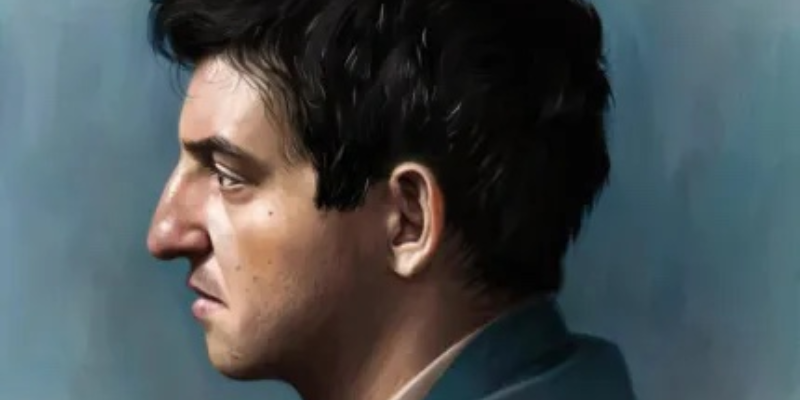
Nathaniel Rich on Storytelling and the Climate Crisis
This Week on the Talk Easy Podcast with Sam Fragoso
Illustration by Krishna Bala Shenoi.
Talk Easy with Sam Fragoso is a weekly series of intimate conversations with artists, authors, and politicians. It’s a podcast where people sound like people. New episodes air every Sunday, distributed by Pushkin Industries.
*
Journalist Nathaniel Rich (writer-at-large, New York Times Magazine) believes we can do “great good” with nature. But how? In his brilliantly reported book Second Nature, he explores the potential of environmental innovations, the weight of living in an era of “terrible responsibility,” what a methane leak in Aliso Canyon can teach us about us, and how he found hope in a Japanese doctor studying immortal jellyfish. We also discuss the spiritual change needed to address our climate crisis, and why (better) storytelling may be the most effective way out of this mess.
Subscribe and download the episode, wherever you get your podcasts!
From the episode:
Sam Fragoso: I wonder, is one of the purposes of writing this book, Second Nature: Scenes from a World Remade, your own way of sorting out the uneasiness you feel about this kind of looming crisis?
Nathaniel Rich: Oh yeah, and that’s true of anything I write. If I have some clear point of view, it’s not going to interest me to write about it or explore it. I’m drawn to things that make me uneasy. That was really the guiding principle… more than any intellectual justification for the stories in the book. The real litmus test for me was, “does this story make me feel a little uncomfortable?” Usually, it was for reasons I couldn’t articulate at the outset, and it was only in writing it that I could narrow it down. That part of the process for me is really rewarding. It is how I think through things.
SF: In the first chapter entitled “Here Come the Warm Jets,” there are two lines that are sort of buried in there, but to me, I was thinking about throughout reading. You write:
We are a show-me species, wired to look for visible evidence of invisible harm. The impulse can lead a person to blame global warming for a balmy afternoon in February or make a climate-change denialist vindication in a snowstorm. The most dangerous threats to our species are precisely those that are most difficult to visualize: long term, slow to emerge, amorphous.
You’ve described yourself as vaguely optimistic, but in that line of thinking, where do you see the hope?
Nathaniel Rich: Well, I don’t feel like it’s for me to tell people whether they should be optimistic or pessimistic. I do feel that this challenge you mention of, basically, how do you get people to act collectively when a problem is not visible to them in an immediate way? is one of the hallmarks of the climate inaction problem.
I don’t think it’s insurmountable. We’re now having a moral reckoning, which is to focus on the very real manifestations of the problem on people’s lives. There’s this sense of violation that by failing to act, we’ve violated every principle we claim to animate us, whether it’s a belief in equality, or fairness, or respect, or caring for future generations. We are not living up to a lot of the principles that are fundamental to Western democracies if we fail to fight this problem.
One way to get into that is not through the old activist techniques of hectoring people and demanding that they act, but I think there is a greater need for stories that help us understand these issues in a more complex and personal way. Storytelling is the best way for people to understand the problem in its full dimensions. I think narrative writing is important in any society to help people think about how these great public crises touch our own inner lives and shape our lives. I think that’s a valuable act.
__________________
Nathaniel Rich is the author of Second Nature: Scenes from a World Remade and Losing Earth: A Recent History, which received awards from the Society of Environmental Journalists and the American Institute of Physicists and was a finalist for the PEN/E.O. Wilson Literary Science Writing Award; and the novels King Zeno, Odds Against Tomorrow, and The Mayor’s Tongue. He is a writer at large for The New York Times Magazine and a regular contributor to The Atlantic, Harper’s, and The New York Review of Books. Rich lives in New Orleans.
Sam Fragoso is the host of Talk Easy with Sam Fragoso, a weekly series of conversations with artists, activists, and politicians. His writing has appeared in The Atlantic, Vanity Fair, and NPR. After conducting seminal interviews with icons like Spike Lee, Werner Herzog, and Noam Chomsky, he independently founded Talk Easy in 2016.
Talk Easy
Talk Easy with Sam Fragoso is a weekly series of intimate conversations with artists, authors, and politicians. It’s a podcast where people sound like people. New episodes air every Sunday, distributed by Pushkin Industries.



















